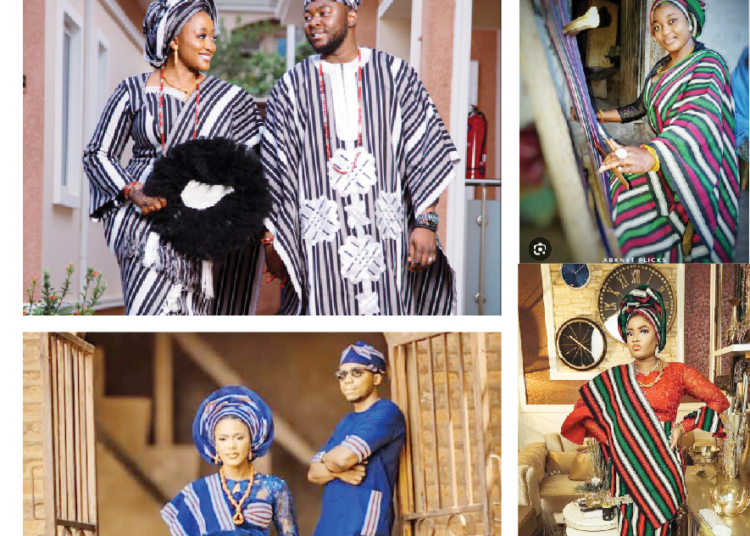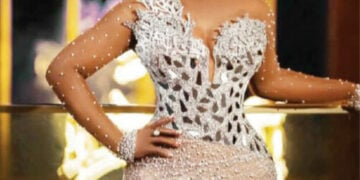Nigeria’s rich tapestry of cultures is vividly showcased through its diverse traditional attires, each reflecting the unique identity and pride of its people.
Among these, the Ebira ethnic group, primarily residing in Kogi State, stands out with their enchanting traditional clothing that encapsulates their heritage and elegance.
Ebira traditional attire is known for its striking simplicity, characterised by bold and colorful fabrics often adorned with intricate patterns. The Ebira people take immense pride in donning their traditional outfits during cultural festivals, weddings, and significant ceremonies. A standout fabric, Aso Ebira, is hand-woven and celebrated for its bright hues and geometric designs.
For Men
Ebira men typically sport a two-piece outfit consisting of a loose, shoulder-sleeved shirt known as a dashiki or eruu, paired with matching trousers. This ensemble is complemented by a traditional cap called etutu or fila, usually in earthy tones with patterns like zigzags or stripes. The overall outfit reflects a deep respect for tradition and an air of dignity, with the cap serving as the crowning touch.
For Women
Women’s attire exudes grace and vibrancy, usually featuring a wraparound skirt called iro, paired with a blouse known as buba. The look is elevated by a headscarf called gele, adding a sophisticated flair. Women often wear Aso Ebira fabrics in bright colors such as red, green, and blue, symbolising the vibrancy of life, with intricate designs that incorporate floral and abstract motifs.
During festivals and ceremonies, women enhance their elegance with handcrafted beads, bracelets, and necklaces. The addition of waist beads, or igburu, adds a culturally rich touch to their appearance, showcasing the depth of Ebira traditions.
Cultural Significance
Ebira traditional outfits are more than clothing; they embody cultural identity and pride. At the Eche ohi festival, a major cultural celebration, the Ebira people adorn themselves in their finest attire to honor their ancestors and celebrate their heritage. The fabrics and designs often convey social and marital status, reflecting individual roles within the community.
For weddings, brides don richly colored Aso Ebira fabrics adorned with elaborate beadwork, signifying the day’s importance. Grooms complement their brides with matching attire, symbolizing unity and celebration of marriage.
Modern Influence and Adaptations
Like many traditional garments, Ebira attire has evolved, incorporating modern fashion elements while maintaining its cultural essence. Today’s younger generations blend traditional fabrics with contemporary designs, creating stylish outfits that remain deeply rooted in cultural heritage. The versatile Aso Ebira fabric is now used in the creation of gowns, kaftans, and jackets, showcasing its adaptability and timeless allure.





